Ever wondered about the people behind the strategic communication between organizations and the media? They’re called Media Relations Specialists. In their role, they craft engaging press releases, respond to media inquiries, and develop relationships with journalists and influencers. But that’s just the tip of the iceberg. There’s a lot more to their role and its strategic significance in shaping public perception and advancing organizational goals. Curious to know more about the intricacies of their work?
Overview of the Media Relations Specialist Role
As a key player in the public relations field, a media relations specialist serves the crucial role of managing and controlling the exchange of information between an organization and the media. This role is pivotal in shaping the public relations landscape. You, as a media relations specialist, are the bridge that connects organizations to the outside world, playing a strategic role in crafting the image and reputation of your organization.
Your responsibility of managing interactions with the media includes pitching stories, responding to media inquiries, and generating positive media coverage. You’re a guardian, protecting and enhancing the organization’s image. You’re also a mediator, facilitating open and transparent communication between organizations and media.
The importance of your role can’t be overstated. Through your efforts, you influence public opinion, build trust, and foster relationships. You help ensure that the organization’s voice is heard, its mission understood, and its achievements recognized.
In a world where public perception can make or break an organization, your role isn’t just important, it’s vital. So, as a media relations specialist, you don’t just manage interactions, you shape realities.
Role and Responsibilities
You might be wondering, what exactly does a media relations specialist do?
Their main role involves strategizing communications, building relationships, and shaping the public perception of their organization.
On a daily basis, they manage media interactions, create compelling content, and engage in event coordination.
Core Functions in Media Relations
Media relations specialists perform several core functions, including crafting engaging press releases, responding effectively to media inquiries, and nurturing lasting relationships with media outlets.
In your media relations specialist job, you’ll find that handling media requires a keen understanding of their needs and schedules.
Crafting press releases is an essential aspect. These need to be engaging, accurate, and timely, providing journalists with all the necessary details about your organization’s news. They should be concise, well-written, and adhere to journalistic style guidelines to facilitate the journalists’ job and increase the chances of your news being covered.
Responding to media inquiries is another critical function. You should be prompt, professional, and helpful, providing the requested information and arranging interviews where necessary. Your goal is to be a reliable resource for the media, making their job easier while promoting your organization’s interests.
Day-to-Day Activities
In the bustling world of media relations, daily responsibilities typically revolve around monitoring media coverage, strategizing communication approaches, and cultivating relationships with journalists and influencers. As a media relations specialist, your role requires you to stay abreast of current news and trends, ensuring your company or client is both proactive and reactive in the ever-changing media landscape.
On a given day, you might find yourself reviewing press clippings, social media posts, and online articles to gauge public perception and media sentiment about your organization. This process of monitoring media coverage is crucial for identifying opportunities to promote positive stories or to address potential crises before they escalate.
Strategizing communication approaches is another significant part of your daily responsibilities. You’ll be designing and implementing media campaigns, writing press releases, and preparing spokespersons for interviews. Your goal is to craft a compelling narrative that aligns with your organization’s mission and resonates with the public.
Lastly, forging strong relationships with journalists, bloggers, and influencers is integral to your role. These relationships can help gain positive media coverage, amplify your messages, and ultimately shape public opinion in favor of your organization.
Professional Skills and Qualifications
As a media relations specialist, it’s crucial to have certain professional skills and qualifications. These include strong communication abilities, a keen sense of strategy, and an educational background in fields like journalism or public relations.
Now, let’s examine the specific skills and qualifications needed to excel in this role.
Essential Skills for Success
To excel as a media relations specialist, you’ll need key skills like exceptional communication, strategic planning, and crisis management. Your communication skills should be honed to convey clear, concise messages to the media and the public.
Strategic planning enables you to develop and implement effective media outreach campaigns that align with your organization’s goals and objectives.
Crisis management is also crucial in this role. You’ll need the ability to remain calm under pressure, react quickly and develop strategies to manage negative public perceptions effectively. This might include drafting press releases, coordinating interviews, or arranging press conferences to address the issue head-on.
Additionally, you’ll need a deep understanding of public perception. This involves monitoring how your organization is perceived by the public and using this information to guide your media outreach strategies. It’s about being proactive, anticipating potential issues, and being ready to respond if necessary.
Educational and Training Requirements
While honing these skills is vital, you’ll also need a solid educational foundation and relevant experience to excel in media relations. Typically, this begins with earning a bachelor’s degree in public relations, communications, or journalism. These programs often provide a broad understanding of the media industry, equipping you with the ability to craft and disseminate effective messages.
Internships in public relations are instrumental in providing hands-on experience in the field. They offer you the opportunity to apply theoretical knowledge learned in the classroom to real-world situations, often under the guidance of seasoned professionals. This not only enhances your skills but also exposes you to various aspects of the industry, helping you understand its dynamics and challenges.
Beyond your educational background and internships, continuous professional training is key to staying abreast of the ever-evolving media landscape. This could be in the form of workshops, seminars, or short courses that focus on emerging trends and technologies in media relations.
With this combination of education, experience, and ongoing learning, you’re well-equipped to navigate the exciting world of media relations.
Strategic Importance of Media Relations
Recognizing the strategic importance of media relations can truly shape your organization’s success.
It’s not just about managing interactions with the media, it’s about leveraging those relationships to achieve your organizational goals.
Contribution to Public Relations
In the broad spectrum of public relations, media relations plays a pivotal role, shaping public perception and strategically positioning your brand in the marketplace. Media relations specialists contribute significantly to your public relations strategy, helping formulate the narrative that shapes public opinion about your brand.
Their contribution to public relations isn’t just about promoting your brand or deflecting negative press. They work to cultivate strong relationships with journalists and influencers in your industry, ensuring your brand receives favorable media coverage. They’re responsible for crafting compelling stories that capture your brand’s essence and resonate with your audience.
Furthermore, media relations specialists are instrumental in crisis management. They navigate the waters of potentially harmful situations, controlling the narrative to protect your brand’s reputation. They also monitor public opinion, alerting you to trends or shifts that could impact your brand.
Impact on Organizational Goals
As you leverage the expertise of a media relations specialist, it’s important to understand how they can propel your organization towards its strategic goals. Media relations specialists craft media strategies that are intricately linked with your organizational goals, thus ensuring that every communication and social media effort contributes towards achieving these goals.
These specialists enhance public awareness about your organization, its products, and services. They help shape public perception and build a positive image. This in turn, can lead to increased customer loyalty, better sales, and a competitive edge in the market.
Consider the table below to understand the impact of media relations on your organizational goals:
| Organizational Goals | Media Strategy | Outcome |
|---|---|---|
| Increase brand visibility | Launch a strategic PR campaign | Enhanced public awareness |
| Improve reputation | Manage crisis communication effectively | Positive public perception |
| Grow customer base | Leverage social media channels | Increased customer engagement |
| Boost sales | Media promotion of products/services | Higher sales volume |
Challenges in Media Relations
In your role as a media relations specialist, you’ll face a range of challenges. From navigating the complexities of the media landscape to adapting to its rapid digital evolution, your journey won’t be easy.
Let’s explore these challenges and discuss how you can tackle them effectively.
Navigating Media Challenges
Navigating the challenges and complexities of media relations, such as building relationships with the media and managing media bias, can often feel like a tricky maze. But don’t fret! With the right skills and knowledge, you can master these obstacles.
Media bias is one of the significant hurdles you’ll face. It can sway public opinion and tarnish a company’s positive public image. But when you understand the nuances of media bias, you can tailor your public relations efforts to counteract it effectively.
Managing media challenges also involves building strong relationships with journalists and influencers. To do that, you need to demonstrate value by providing them with timely, interesting stories about your company.
Real media relations specialist resumes often boast a track record of securing positive media coverage, even in challenging circumstances.
Adapting to the Digital Media Landscape
With the digital media landscape constantly evolving, you’ll need to adapt and innovate your media relations strategies to effectively navigate these changes. The digital media impact has reshaped traditional media relations, making it crucial for you to adjust your media relations practices to stay relevant and effective.
- The rise of social media platforms has expanded the reach of communication. You must now manage your brand’s image across multiple channels that have a global audience.
- The 24/7 news cycle requires you to be on your toes all the time, ready to respond to any situation that might affect your brand’s reputation.
- The ability to analyze vast amounts of data allows for more targeted and personalized communication. You’ll need to hone your skills in data analysis to create more effective strategies.
Adaptation in this digital landscape means more than just learning new tools. It also involves understanding the nuances of digital communication and how it influences public perception. This shift from traditional strategies can be challenging, but it’s an essential part of modern media relations.
Future Directions
Now, let’s turn our attention to the future of media relations. Trends and evolutions are reshaping the landscape, and as a media relations specialist, you’ll need to be prepared for these shifts.
From adopting new technologies to navigating uncharted challenges, let’s explore where the industry is heading.
Trends and Evolutions
Looking ahead, it’s essential to consider the potential future trends and evolutions in the field of media relations, particularly as changes in media consumption and technology continue to reshape the industry. The evolving role of media relations specialists is being shaped by these upcoming changes, which are being driven by advancements in technology and shifts in media consumption trends.
The following trends are expected to impact the industry:
- Increased emphasis on digital media: With the rise of social media and online news platforms, the focus is shifting from traditional to digital media. This means media relations specialists must be adept at navigating these platforms and utilizing them effectively.
- Data-driven decision making: Technology advancements are making it easier to gather and analyze data. This can guide strategies and help measure success, making it crucial for media relations specialists to develop strong data literacy skills.
- Personalized content: As audiences become more segmented, creating tailored messages that resonate with specific groups is key. This requires a deep understanding of different audience segments and the ability to craft compelling narratives for each.
These trends indicate an exciting future for media relations, with specialists playing an increasingly strategic and data-driven role.
Preparing for Future Challenges
To prepare for the future challenges in the media relations field, it’s essential that you stay ahead of trends and continually hone your skills. As a media relations specialist, your job will increasingly involve managing social media accounts and leveraging these platforms to foster positive relationships with the public.
Public relations specialists work in a dynamic environment, with challenges arising from rapidly evolving communications media. To ensure you stay relevant, it’s crucial to develop social media strategies and familiarize yourself with emerging platforms.
Take a look at the table below outlining key areas of focus and corresponding actions:
| Focus Area | Action |
|---|---|
| Emerging Platforms | Regularly research and experiment with new social media platforms. |
| Skill Development | Invest in continuous learning, particularly in digital communication and social media management. |
| Trend Awareness | Stay updated with the latest trends in media relations and adapt your strategies accordingly. |
| Networking | Actively engage with industry professionals and participate in relevant forums and discussions. |


